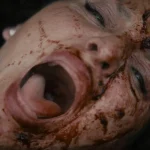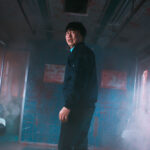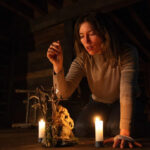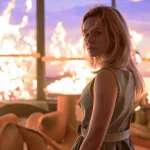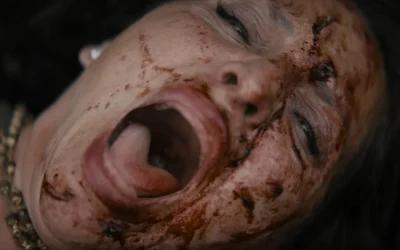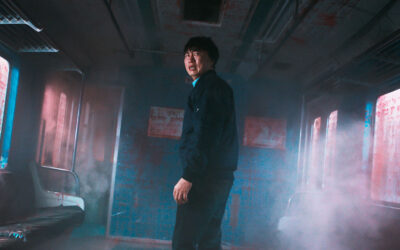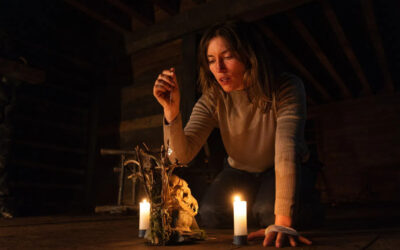1978
Codirectors Luciano and Nicolás Onetti craft a marvelously macabre fright-fare outing with 1978 (Argentina, 2024). Set in Argentina in the titular year, and specifically during both a military dictatorship and the World Cup match between that country — which hosted the event in Buenos Aires — and The Netherlands, the film uses the dark history of torture, brutality, and murder by the regime of that time as its setting. Government representatives torture political dissidents for information regarding other members of their groups, but when they accidentally kidnap the wrong group, the hell that they have brought to so many is about to be visited back on them in gruesome, blood-soaked ways. Unflinching in its depictions of political horror and unrelenting in its presentations of supernatural terror and violence, 1978 delivers visceral shocks and grisly set pieces galore. The Onetti brothers deliver a feature that combines strong political and philosophical themes along with hard-hitting horror.
Solvent
Johannes Grenzfurthner’s Solvent (Austria, 2024) deals in historical and present-day political horror, as members of a group-for-hire searching for Nazi artifacts become affected by the elements of their surroundings. The film is shot largely in POV style from the helmet cam of American Gunner S. Holbrook (Jon Gries), who heads up the group, as they search the late Nazi official Wolfgang Zinggl’s abandoned farmhouse and wine cellar in the village of Egelsau. Polish academic historian Krystyna Szczepanska (Aleksandra Cwen) sees something through a protruding pipe in the wine cellar so terrifying that she kills another group member while trying to escape the room. The project is abandoned, but Holbrook — who suffers from PTSD after receiving a dishonorable discharge from his military service in Kuwait and then becoming a mercenary in Bosnia — becomes obsessed with whatever drove his former lover Krystyna to the brink of madness and further explores the cellar. What follows is a grim reminder to never forget the atrocities of the past lest they be repeated, delivered as a mysterious supernatural tale boasting possession and body horror combined with dark humor. Grenzfurthner — who also appears in the film as the current owner of the property, and who uses actual images of his grandfather to portray the villainous deceased homeowner — combines the POV shots with blasts of images and archival footage, captured intriguingly by cinematographer Florian Hofer. Solvent is by no means an easy watch, but it is an engrossing one that goes all-in on delivering its messages and on providing unsettling, dizzying fear fare.

1978 and Solvent screen as part of Australia’s Dark Nights Film Festival, which runs October 11th through October 13th, 2024. For more information, visit https://www.darknightsfilmfest.com/.


